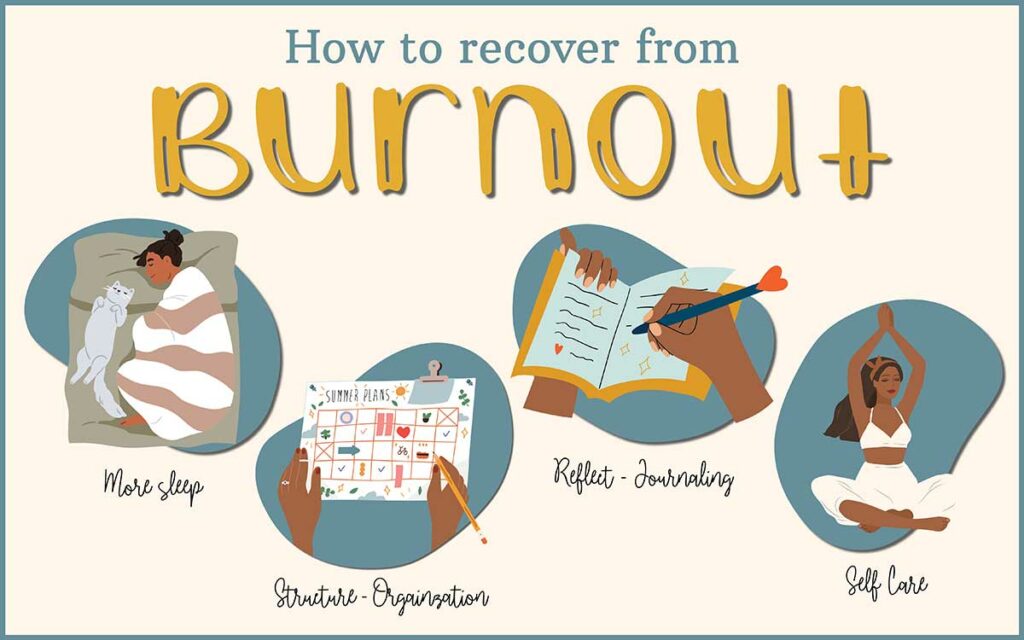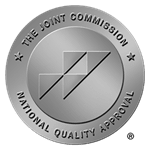How to Recover From Burnout
What is Burnout?
Stress, overwork, and super packed schedules can all contribute to cognitive overload, leaving you feeling emotionally drained and easily overwhelmed.
Burnout generally refers to the cumulative effects of stress over time, without proper time to recover. It can lead to feelings of emptiness, depletion, lack of motivation, and mental exhaustion.
The World Health Organization has classified burnout as a condition resulting from chronic workplace stress that has not been properly managed. While job stress is the most common trigger, there are a number of other contributors to burnout, including health concerns, caretaking, and family issues.
Burnout differs from stress in that it typically generates a lack of caring over time, or giving up. What’s worse, burnout seldom resolves itself quickly or easily.
What Causes Burnout?
Although burnout is primarily regarded as a workplace condition, it certainly affects all areas of our life, including our health, home life, and relationships.
Burnout has several root causes, including:
-
Unclear job expectations
When we are uncertain about what success looks like in our workplace, there is a tendency to overthink – and ultimately, overwork.
-
Feeling a lack of control
Not having flexibility around our schedule or workload can create additional stress or chaos in our daily routines.
-
A lack of boundaries
Always saying “yes”? It’s easy to get caught up in things we don’t want to do or have time for – especially when we’re worried we’ll be letting others down. Over time, resentment can build, in addition to unnecessary stress.
-
Uneasy workplace dynamics
Work in and of itself can be stressful enough. Throw in a few dysfunctional coworker relationships, and that stress is easily heightened. This dysfunction can come in the form of micromanagement from a supervisor, or bullying from a jealous peer.
What Does Burnout Feel Like?
Burnout can look different for everyone. Many of the symptoms aren’t quickly apparent, and will simply build up over time. If you are feeling overly stressed in the workplace or in another working environment – such as caretaking of a family member – it’s important to check in with yourself to determine if the stress is temporary or chronic in nature.
Symptoms of Burnout
- Fatigue or exhaustion
- Excessive stress
- A decrease in workplace performance
- Trouble sleeping
- Feelings of negativity or irritability
- Alcohol or substance abuse
- Type 2 diabetes
- High blood pressure
- Heart disease
How to Recover From Burnout
Recovery from burnout is certainly possible. The key to treating – and beating – burnout is acknowledgement of the issue. It’s natural in this day and age to simply accept stress as a way of life. Doing so allows stress to build, becoming chronic in nature. Once we’ve identified that we are suffering from potential burnout, we are in a position to take definitive action.
The length of time it takes to recover from burnout can vary from person to person. It could take weeks, months or years, depending on the level of emotional, mental or physical exhaustion one has endured.
Short-term Solutions
While there’s no quick fix to combating burnout, there are a number of ways to reduce our overall stress and create a healthier state of mind.
To ease the impact of burnout, try incorporating the following strategies:
Get more sleep
No one will ever tell you to get less sleep. No one! Quality sleep helps with the regulation of stress hormones, and gives us more energy to tackle what the day throws at us. If you’re not getting enough sleep, your burnout symptoms will only get worse. Aim for 7-8 hours minimum for optimum health.
Prioritize relaxing activities
Mindfulness practices such as qi gong, yoga and meditation are excellent activities to incorporate into your day. They provide us with the tools to be more present in the moment, and cope with our thoughts in a healthier manner.
Get in a workout
New research shows that aerobic exercise in particular can help us recover from mental exhaustion by providing recovery for cognitive processes. Need help getting started? Check out this workout plan for beginners.
Long-term Solutions
There are a number of lifestyle and mindset adjustments we can make to prevent burnout in the first place, or help us come down more quickly once it strikes.
Create more structure
Having more structure in our day allows our brain to relax, as it will have a better sense of what to expect, and when. Rituals can provide peace of mind by reducing the pressure of always having to figure things out. It also reduces the number of decisions we’ll have to make each day.
A few simple examples of daily rituals include:
- Carving out time in the morning to tidy up so that we can come back to a clean home at the end of the workday.
- Hitting the gym at the same time everyday, no excuses.
- Planning for the next day before going to bed, including choosing a work outfit, packing a lunch, and jotting down the top priorities for the following day.
- Prioritizing breaks in the workday – perhaps a mid-morning coffee break or lunchtime walk.
Set and maintain boundaries
Oftentimes, our obligations to others can create unnecessary stress. Learn how to say “no” to things you don’t have time to do – or simply don’t want to do. Boundaries are wonderful for all parties. Setting clear boundaries in the workplace will let coworkers know upfront how you expect to be treated, and what you need in order to do your best work.
Nurture yourself
Much like the airline edict to put on your own oxygen mask before putting on your child’s, it’s important to be sure you are prioritizing your own health and happiness. Only then can you create your best work for someone else. Nurturing activities could include taking regular screen breaks, spending more time in nature, eating healthy foods, committing to daily physical activity, getting weekly massages, and so on.
Reflect, often
It’s not uncommon for burnout to creep in for the simple reason that we don’t feel passionate about our work. It’s important to assess whether the root causes of our stress are external – stemming from other people and things out of our control – or internal. Routinely assess whether the work you’re doing, and the workplace you’re doing it in, are still a good fit for what you want to grow into.
Burnout Recovery in Orange County, CA
Suffering from burnout? Barn Life Recovery provides holistic, community-based treatment for chronic stress and other mental health conditions. Our facility is a haven for people from all walks of life who are living with these issues. We specialize in non-pharmacological treatment with the goal to help you Love Life Again. Learn more about what we do and attend one of our free community events to see if we’re a good fit for you.











